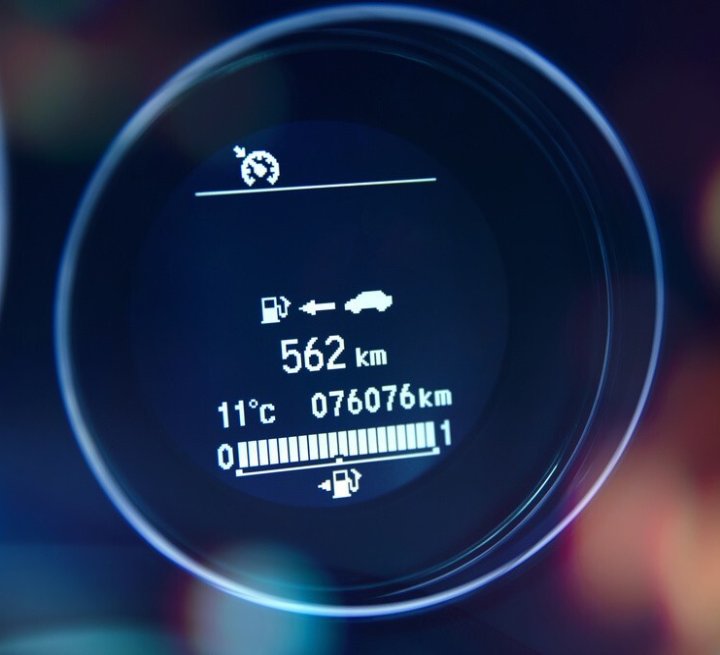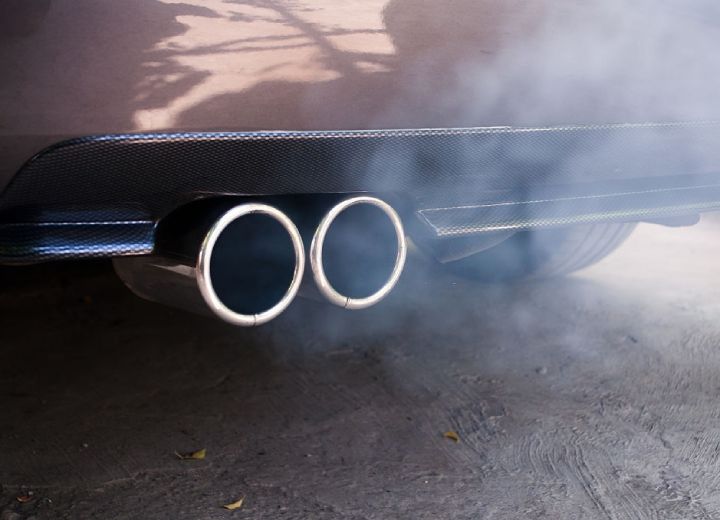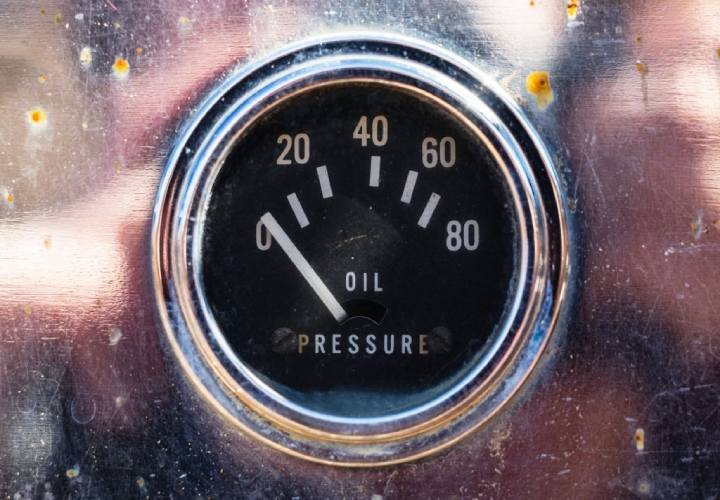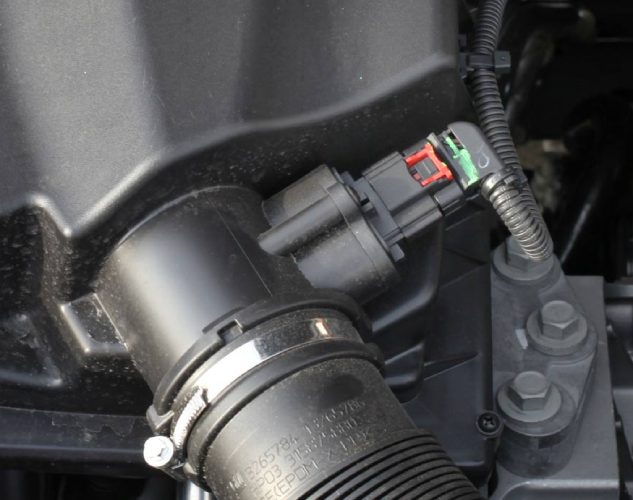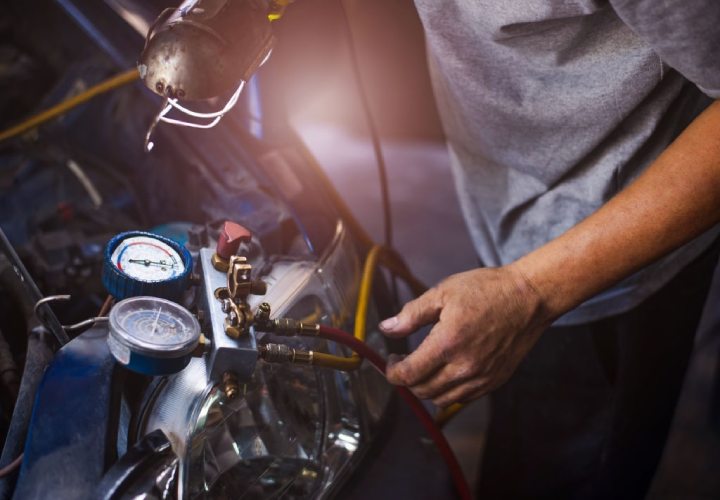As a car owner, especially one that has seen better days, you probably roll your eyes at your car about seventeen times a week. The check engine light is on, the car won’t start, and the dashboard light won’t go out; all of this makes you want to wrap it all up and call it a day.
Of course, you can’t just do that, a new car might not be in your budget, plus you might really like working on your vehicle. In this article, we will be covering one of the situations that might make you portray any of those expressions.
Here is what white smoke coming from your exhaust means
Depending on where you live, this can be a very natural occurrence. If you live in chillier places, it is just a matter of condensation, and you do not have to worry. However, if it is smoke, you need to stop your car and do some checks.
You can differentiate condensation from smoke by:
- The smell (though sometimes it is odorless and you should never inhale for too long)
- The texture (condensation feels sort of heavier), and
- The color
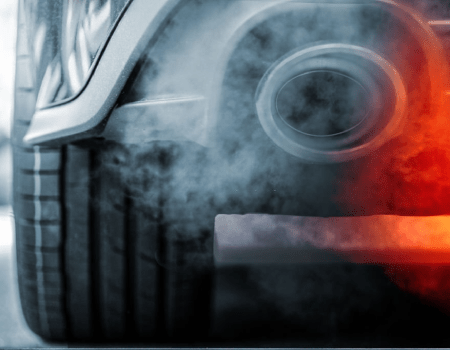
Here are the main causes for white smoke coming out of your exhaust
If you have ascertained that the white gas is smoke and not condensation, one of the following would be the most likely cause.
01. Coolant leak
Another thing about condensation from the exhaust pipe is that it goes away after some time of driving. As you continue to drive, if you notice that the white smoke is still coming out, you would need to check out your coolant for a leak.
What is your coolant, you may wonder? Your coolant is essentially fluid, also called antifreeze, that runs through your vehicle and keeps it operating within the bounds of an optimal temperature range.
One way to be sure that it is your coolant that is leaking is to observe and perceive the smell of the smoke. If it has a characteristically sweet smell, it is likely your coolant that is the issue.
What could cause a coolant leak?
Now, what could cause the coolant of your car to leak? The most likely reason is a crack, a blown gasket, or a damaged heater core (overfilling is unlikely). When the coolant leaks out of the crack, it could despoil your engine oil and turn the smoke produced white.
This is a problem because the engine would overheat if the coolant level got too low. To check for coolant leaks, you need to check for leaking fluids under the car hood (you can then follow these to a source). You could also hunt for signs of residue around the engine.
Another indicator is the presence of bubbles in the coolant storage or the radiator. It is best to be careful while checking the coolant when the engine temperature is still high; else, you might suffer burns.
2. An oil-leak
When oil leaks from the engine, the results could be detrimental to your car in many ways. Many things might cause this, but the most likely culprit is a damaged valve seal or piston ring in relevance to this. When this happens, oil flows out from where it should be and into the chamber where combustion takes place. Here, it mixes with the fuel and is combusted to give the white smoke we keep talking about.
Checking for oil leaks
Checking for oil leaks is easy. You can check under the hood of your car and inspect some of the leaking fluid to see if it is oil. You could also easily check your oil level using the dipstick located on the cover. Visual inspection of the engine also helps.
If your car engine sprays oil about when turned on, you can suspect a faulty seal. A spoilt oil pan or filter, bad connections, and a faulty gasket might likely be the culprit. To inspect the oil pan, you would need to crawl under the hood to check the pan seals.
Related content: Why do I smell burning oil through my vents?
3. A bad fuel injector
Your fuel injector is responsible for, you guessed it, injecting fuel into your engine so that it combusts and powers the car. It does this by opening and closing the valves, which are controlled electronically by the ECU to open and close numerous times in a second.
Your fuel injector can become perverted with debris, and apart from the white smoke, you would see other symptoms, including your check engine light, an engine that misfires or stalls, etc. Your fuel might also leak, and your car’s fuel economy might skew off balance.
When the excess fuel is injected into the engine, it would not combust properly and only come out as white smoke.
Checking for a bad fuel injector
You can check for faults by testing the fuel injectors.
You pop the hood of the trunk and locate them. Using a long metal screwdriver (at least a foot long), you touch the injector and place your ear to it (this helps you hear the sound without allowing your face too close to it).
You listen to each injector using this technique to hear a clicking sound. The injectors that are not clicking are the culprits. Since they are electrically controlled, you also have to ensure they receive power.
Other ways you can check include
- Visually checking the TBI injectors after starting the car
- Checking for a dead injector through the coil using a multimeter and your knowledge of the injectors’ resistance value.
4. Excess fuel in the combustion chamber
We have explained this in part in the previous mention. Known as a flooded engine, the car would not even start at all in most cases. The excess fuel is not burnt efficiently. That is why it gives off the white smoke.
For this, you would do well to take your car to a mechanic so that your problem might be solved. This is the likely scenario when you have checked for other issues, and they do not seem likely.
Related content: Why does the oil pressure gauge go up and down while driving?
Can I drive my car with white smoke?
You certainly can drive, but it is not advisable, lest your car undergoes severe damage, considering the situations mentioned above. Driving with white smoke can cause damage to your engine and make the problem worse. It’s also important to remember that if your vehicle is emitting white smoke, it may not pass an emissions test.
What Do Exhaust Emissions Normally Look Like?
If you look at your exhaust pipe when the engine is running, you’ll notice that the exhaust gases are usually clear or slightly blue. This is what’s considered normal. When these gases are burned in the engine, they should be completely clear. However, if you see white smoke coming from the exhaust pipe, it indicates that something is wrong.
Related content: Here Are the Best Mass Air Flow Sensor Cleaner Alternatives
FAQ
Here is a list of questions people experiencing this issue usually ask on automotive forums or when they drive their car to a mechanic.
Can low oil cause white smoke from exhaust?
No, low oil usually does not cause white smoke from the exhaust. If you see white smoke, it’s more likely that there is coolant leaking into the combustion chamber or that the engine is burning oil. Either way, it’s best to have your vehicle checked out by a mechanic as soon as possible.
Can bad gas cause white smoke from exhaust?
There is likely another problem with the car, as bad gas will not cause white smoke from your exhaust. Lower quality gas will usually reflect poor MPG and slower acceleration.
Can too much oil cause white smoke from exhaust
Yes, too much oil can cause white smoke from the exhaust. When this happens, it’s usually because the oil leaks into the combustion chamber. This can cause damage to your engine and make the problem worse. It’s best to have your vehicle checked out by a mechanic as soon as possible.
Can bad spark plugs cause white smoke from exhaust?
One or more bad spark plugs will not cause white smoke to come out of your car’s exhaust. When one or more bad plugs start to fail, the engine will start running rough, and any unburned fuel will result in black smoke coming out of the exhaust pipe.
Can a bad o2 sensor cause white smoke from exhaust?
A faulty O2 sensor will not result in white smoke coming from the exhaust. A bad O2 sensor can cause several other problems, including decreased fuel efficiency, increased emissions, and engine misfires.
Can a bad water pump cause white smoke from exhaust?
A faulty water pump will not cause the vehicle to emit white smoke from the exhaust either.
Conclusion
White smoke is indicative of any of the aforementioned issues. However, before checking for any of these issues, make sure that the “smoke” is not just simple condensation, as that does not harm your car.
Remember these three words that will help you differentiate white smoke from condensation: smell, texture, and color.
My name is Jeffrey Williams and I have been a car mechanic for over 35 years. I am currently working NYC Auto Repair Shop, in New York City and recently developed a strong passion about blogging. I decided to put together this blog where I will try and answer the most commonly asked questions I get on a daily basis from my customers.

